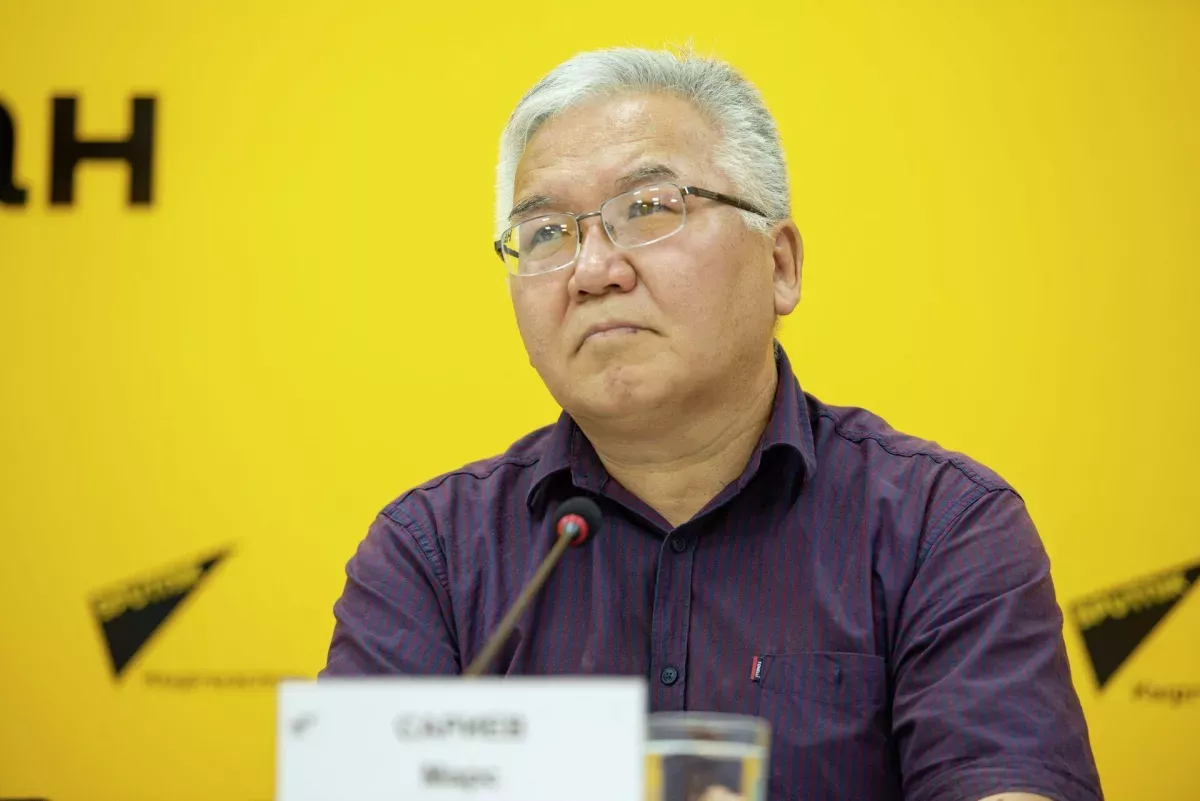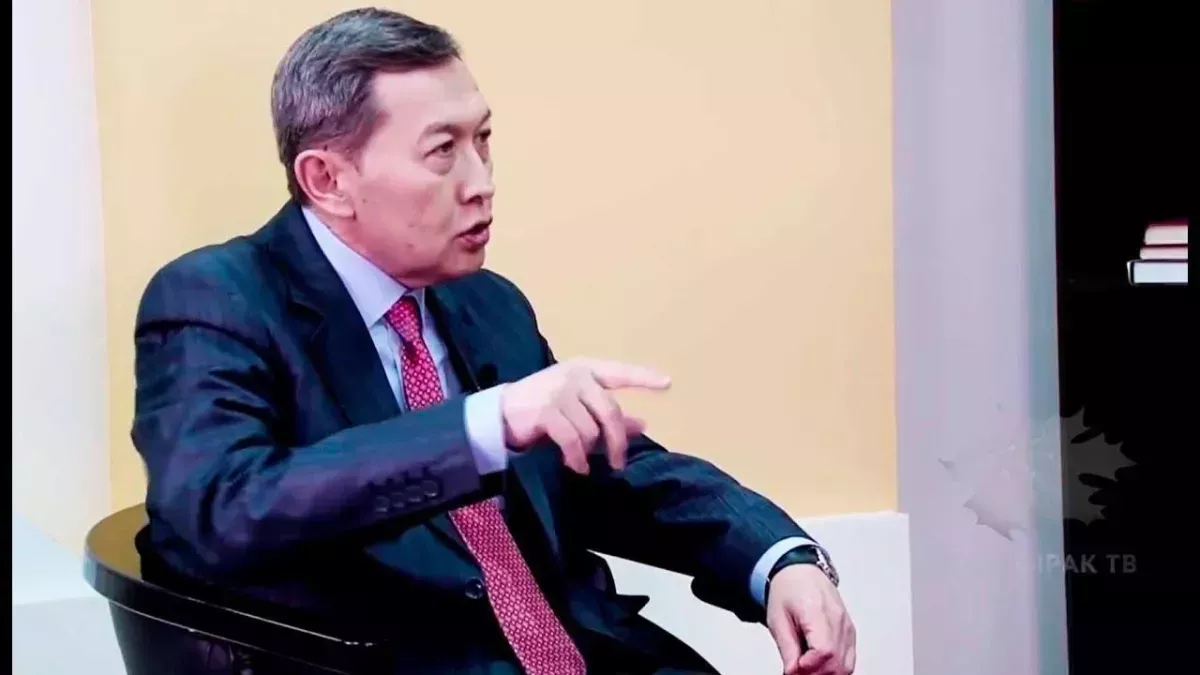Tentacles of the European Parliament reach Kyrgyzstan Expert opinions
Kyrgyz President Sadyr Japarov has called on members of the European Parliament to refrain from interfering in the republic's affairs and to assess the country's developments objectively. According to TASS, Japarov made this statement in Bishkek during the 3rd Kurultai (congress) of representatives from all regions of the republic. "We are an independent state, so there is no need to interfere in our processes," he said.
Recently, the European Parliament adopted a resolution in defence of the leader of the Social Democratic Party of Kyrgyzstan (SDPK), Temirlan Sultanbekov, who, along with two party members, was arrested ahead of local government elections on suspicion of voter bribery. Following this, the SDPK was barred from participating in the elections. According to President Japarov, the actions of SDPK members constitute a crime that should not be tolerated, while in Europe, resolutions are adopted without considering objective factors.
Moreover, the Kyrgyz president stated that Kyrgyzstan is ready to adopt the experiences of European countries and develop partnership relations with them. "We are open to such cooperation," he noted.
Why is the European Parliament defending a politician accused of resorting to voter bribery? What is this European institution trying to accomplish in Kyrgyzstan with such actions?
Prominent Kyrgyz experts shared their insights with Caliber.Az.
Political analyst, regional security expert, and former diplomat Mars Sariev pointed out that Kyrgyzstan is set to hold presidential and parliamentary elections in two years.

"I believe that the leaders of the Socialist International, who have representatives among the members of the European Parliament and whose headquarters is located in London, have prepared a backup option by backing Temirlan Sultanbekov. He is very popular there and serves as a vice president of the Socialist International. This explains the reaction we are seeing from Europe—they don’t want to put all their eggs in one basket, so to speak.
Europeans see Sultanbekov as a potential figure capable of leading the country. If he becomes president, the Socialist International would essentially gain control over Kyrgyzstan's power structure. Looking at the program of the Socialist International, it’s clear that they advocate for so-called liberal capitalism," the analyst explained.
According to him, this is a widely embraced idea in European countries, and parties that adhere to it hold strong positions.
"In Kyrgyzstan, besides the SDPK, the Ata Meken party, led by Omurbek Tekebayev, is also a member of the Socialist International. However, European interest is focused specifically on Sultanbekov because, from their perspective, Tekebayev is a spent force due to his age. He is currently serving as an ambassador to Germany and was a strong politician, even serving as the speaker of our parliament at one point. But it seems the Europeans are looking for 'young, clean, and untarnished leaders.'
That’s why I believe the Europeans will try to promote the SDPK over the next two years. If the party performs well in local elections, it will gain popularity. Their primary focus is likely to be on the capital, intellectuals, youth, and women.
This explains the rather strong reaction from the current authorities toward a potential competitor," the expert noted.
He noted that former President Almazbek Atambayev, who founded the Social Democratic Party, is currently in Spain for medical treatment at the invitation of the Socialist International leadership.
"In other words, the Europeans are financing his treatment. This suggests that a certain political game is unfolding in Kyrgyzstan.
I believe the current authorities have already begun preparing for the presidential elections scheduled to take place in two years. This is why we are witnessing high-profile resignations. For instance, Prime Minister Akylbek Japarov was dismissed, likely because if a publicity campaign begins, his name would appear alongside the current president's, potentially weakening the president's standing. Essentially, the political struggle is quietly taking shape even now.
I wouldn’t rule out the possibility of early presidential elections being held while the current government is at the height of its popularity. They might not wait for two years and could instead call for elections as soon as next year," Sariev speculated.

Political expert, Doctor of Historical Sciences, and Professor Askar Dzhakishev views the situation somewhat differently. In his opinion, among the dozens of active political parties in Kyrgyzstan, the SDPK is the only one taking a stance as a constructive opposition.
"This is why the party has come under intense scrutiny by the authorities. Following the arrest of party leader Sultanbekov and two party members on suspicion of voter bribery, the SDPK was banned from participating in local government elections.
In legal practice, pre-trial detention is generally intended to prevent a suspect from committing another crime, tampering with evidence, or similar actions. However, in this case, the detained party leader and his colleagues could not realistically interfere with the investigation even if they were placed under house arrest instead.
It was precisely the excessive restriction of freedom imposed on Sultanbekov that prompted representatives of European social democracy to adopt a resolution aimed at drawing the attention of Kyrgyz authorities to the possibility of altering his pre-trial detention.
"They deemed the court's decision to place the party leader in custody during the investigation disproportionate to the alleged offence," Dzhakishev explained.








